
Delivering on children’s rights
General Measures
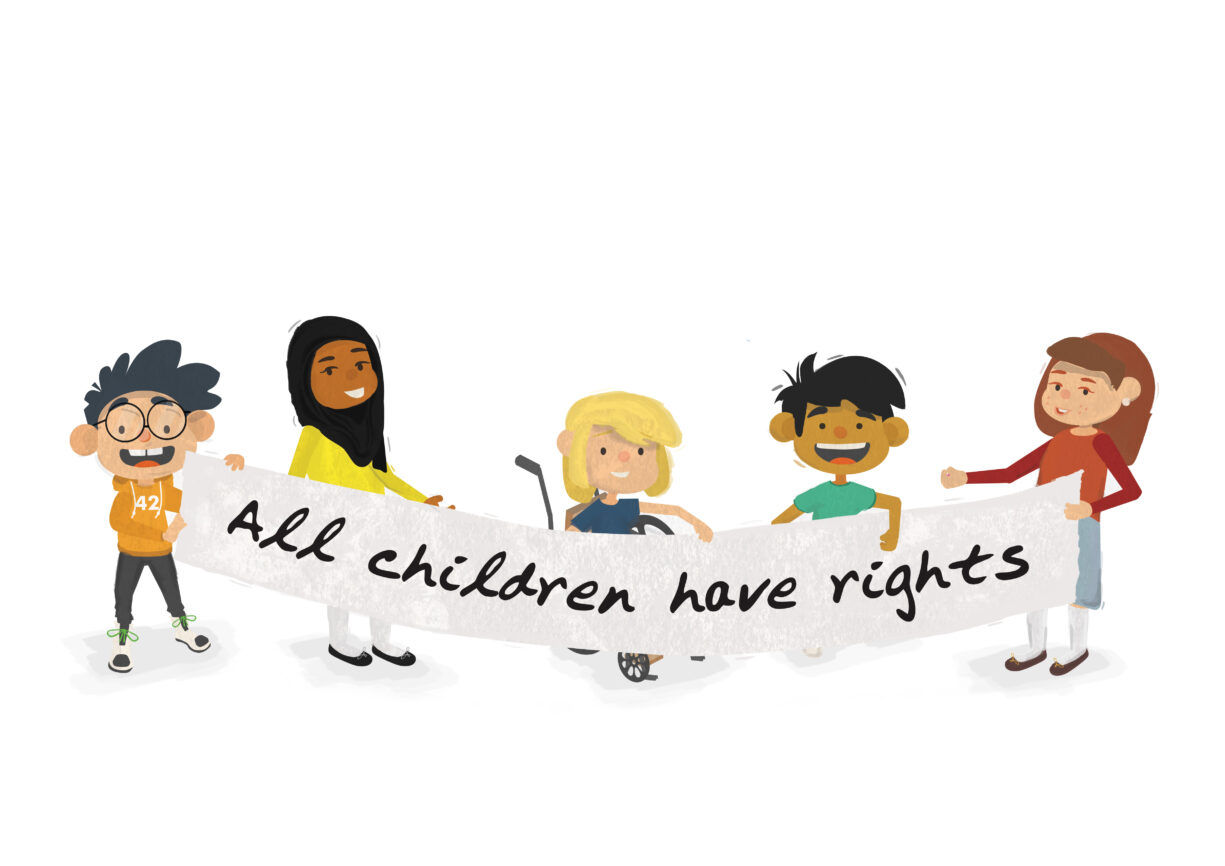
General Measures

Many young people believe the UNCRC is not widely recognised or understood across their peer group, particularly those who do not engage in young people’s organisations. They call for more work to be done through schools and youth organisations to raise awareness of the UNCRC and to build a greater understanding of the rights among all young people. They want to be equal, included, listened to and valued.
In recent years seen children and young people continue to find their voice as Rights Defenders. Young people are no longer waiting to be asked, they are taking the initiative and demanding real change on the issues that most affect them. All of this work as Rights Defenders can only occur if they feel safe to do so. It must be of the upmost importance to the government to ensure that society and the culture ensures people can express their views without fear of harm or damage to their reputation.
More information for children and young people on children’s rights
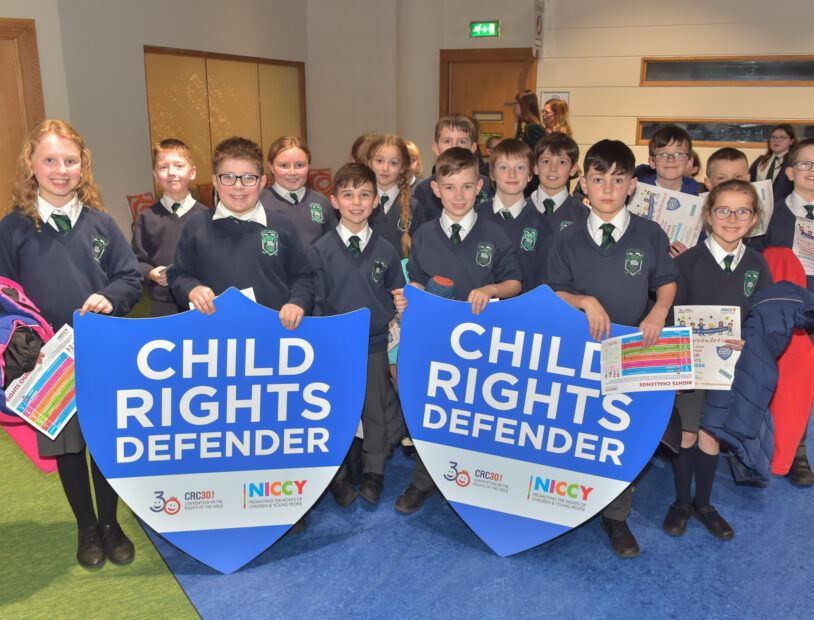
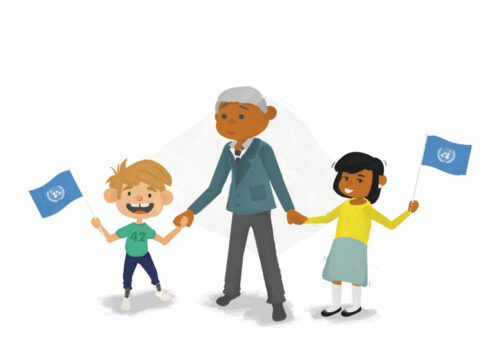 The UN Convention on the Rights of the Child was drafted in 1989. The UK government signed it the following year, on 19 April 1990, ratified it on 16 December 1991 and it came into force in the UK on 15 January 1992.
The UN Convention on the Rights of the Child was drafted in 1989. The UK government signed it the following year, on 19 April 1990, ratified it on 16 December 1991 and it came into force in the UK on 15 January 1992.
When a State ratifies the Convention on the Rights of the Child, it takes on obligations under international law to implement it. Implementation is the process whereby States parties take action to ensure the realisation of all rights in the Convention for all children in their jurisdiction.
Article 4 requires States parties to take “all appropriate legislative, administrative and other measures” for implementation of the rights contained therein. While it is the State which takes on obligations under the Convention, its task of implementation – of making reality of the human rights of children – needs to engage all sectors of society and, of course, children themselves.
Ensuring that all domestic legislation is fully compatible with the Convention and that the Convention’s principles and provisions can be directly applied and appropriately enforced is fundamental. In addition, the Committee on the Rights of the Child has identified a wide range of measures that are needed for effective implementation, including the development of special structures and monitoring, training and other activities in Government, parliament and the judiciary at all levels.
These are split into three areas:
You can find out more on each of these areas below.
 As set out in our legislation, all our work is underpinned by children’s rights, notably the UN Convention on the Rights of the Child, specifically here:
As set out in our legislation, all our work is underpinned by children’s rights, notably the UN Convention on the Rights of the Child, specifically here:
Article 4
Article 42
General Comment 5 outlines that states parties need to ensure, by all appropriate means, that the provisions of the Convention are given legal effect within their domestic legal systems. All relevant domestic law, including local or customary law, must be brought into compliance with the Convention.
Incorporation is fundamental to giving the UNCRC legal effect, and should mean that the provisions of the Convention can be directly invoked before the courts and applied by national authorities. Where there is a conflict with domestic legislation or common practice, the UNCRC should prevail.
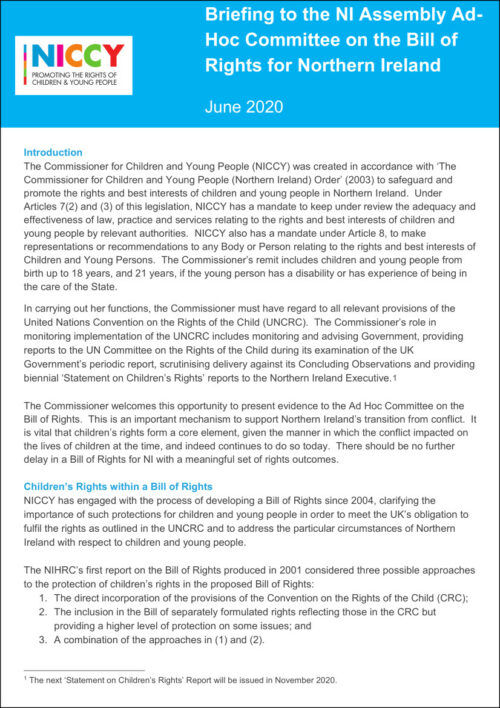 In June 2020 NICCY provided advice to the Ad-Hoc Committee on a Bill of Rights for Northern Ireland, strongly recommending that the Northern Ireland Bill of Rights should include full incorporation of the United Nations Convention of the Rights of the Child. Disappointingly, after two years of deliberation, in February 2022 the Ad-Hoc Committee reported that they had not been able to reach consensus on recommendations on a Bill of Rights for Northern Ireland.
In June 2020 NICCY provided advice to the Ad-Hoc Committee on a Bill of Rights for Northern Ireland, strongly recommending that the Northern Ireland Bill of Rights should include full incorporation of the United Nations Convention of the Rights of the Child. Disappointingly, after two years of deliberation, in February 2022 the Ad-Hoc Committee reported that they had not been able to reach consensus on recommendations on a Bill of Rights for Northern Ireland.
While the UNCRC is yet to be incorporated into legislation in Northern Ireland, NICCY has been monitoring delivery of a significant legislative development for children, in the form of the Children’s Services Co-operation Act (Northern Ireland) 2015 (CSCA). It provides a statutory framework to improve the wellbeing outcomes of our children and young people within a rights-based context. See here for further information on this important piece of legislation.
In addition to ensuring that all articles of the UNCRC are given legal effect through domestic legislation, for this to be meaningful also requires effective remedies to redress violations.
As General Comment 5 explains:
‘Children’s special and dependent status creates real difficulties for them in pursuing remedies for breaches of their rights. So States need to give particular attention to ensuring that there are effective, child-sensitive procedures available to children and their representatives. These should include the provision of child-friendly information, advice, advocacy, including support for self-advocacy, and access to independent complaints procedures and to the courts with necessary legal and other assistance. Where rights are found to have been breached, there should be appropriate reparation, including compensation, and, where needed, measures to promote physical and psychological recovery, rehabilitation and reintegration, as required by article 39.’
In NI children have access to legal aid in relation to taking cases and ‘child friendly justice’ processes have been a developing focus over recent years. NICCY has a key role in providing ‘child-friendly information, advice, advocacy, including support for self-advocacy, as part of our Complaints casework service. We also provide legal assistance and support, can take judicial reviews and/or intervene in cases. NICCY can also conduct formal investigations (the first of which is nearing completion) as set out in Schedule 3 of the 2003 Order. This puts obligations on relevant public authorities to implement the report recommendations with periodic updates on their progress.
You can find out more about our Legal and Investigations team here
The CSCA set out the legislative basis for a Children and Young People’s Strategy (CYPS), and in December 2020, a ten-year Strategy was signed off by the Executive and went live.
You can find out more about the strategy here:
The Committee emphasised the importance of a unit, close to the heart of government, responsible for making children more visible, and coordination of delivery for children, across government departments and agencies. In Northern Ireland the Children’s and Young People’s Unit holds responsibility for coordination of the implementation of children’s rights across government, and sits within the Department of Education.
Children and Young People | Department of Education (education-ni.gov.uk
General Comment 5 outlined the need for a continuous process of child impact assessment and evaluation to ensure that the best interests of the child are a primary consideration in all actions concerning children. This involves assessing the likely impact of any proposed law, policy or budgetary allocation on children before decisions are made, and then subsequently evaluating the action impact of implementation. While previously only a limited number of CRIAs have been undertaken in NI, there is a growing recognition of their importance.
NICCY has supported this through providing advice to government departments, and the development of NI-specific materials and an online training programme.
The Committee has emphasised the importance of identifying and analysing the resources dedicated to children, stating that economic policies are never neutral in their effect on children’s rights. It is particularly important to ensure that children, particularly marginalised and disadvantaged children, are protected from the adverse impacts of economic policies or financial downturns.
In the absence of government information on its spending on children, this is an area NICCY has undertaken significant work over the years, including:
The Committee highlighted the obligation on state parties to develop training and capacity-building for all those working with children and involved in the implementation of children’s rights. This should emphasise the status of the child as a rights holder, increase knowledge and understanding of the Convention and to encourage active respect for all its provisions.
While the general understanding of children’s rights has improved over recent years, and there are pockets of good practice, there has not been any systematic training process for all those working across government and children’s services. To remedy this, NICCY has developed an online training modules on children’s rights which is available to officials and professionals through the NICS LiNKs training platform. Link to this module
NICCY also provides training to legal professionals and other practitioners working with children and young people through its legal CPD events, and on a range of specific areas.
Find out more on our legal team’s CPD events here
We have also provided materials for teachers/youth workers to use in school and club settings to raise the awareness of children about rights through e.g. their inclusion on the CCEA UNCRC Resource Hub and via schools’ C2k platform
Find out more about the UNCRC Resource Hub here
In 2002 the Committee published General Comment 2, focussing entirely on the role of independent national human rights institutions in the protection and promotion of the rights of the child.
It emphasised the complimentary role of independent human rights institutions to effective government structures for children, and that independence is essential:
“The role of national human rights institutions is to monitor independently the State’s compliance and progress towards implementation and to do all it can to ensure full respect for children’s rights. While this may require the institution to develop projects to enhance the promotion and protection of children’s rights, it should not lead to the Government delegating its monitoring obligations to the national institution. It is essential that institutions remain entirely free to set their own agenda and determine their own activities.” UNCRC. (2002), General Comment 2 on The role of independent national human rights institutions in the protection and promotion of the rights of the child, Geneva, para 25.
You can find out more about NICCY’s role as in Independent Human Rights Institution for Children here.
Also provide a link to the Reviews of our legislation?
Article 42 of the UNCRC requires that ‘States Parties undertake to make the principles and provisions of the Convention widely known, by appropriate and active means, to adults and children alike.’ This includes disseminating the text of the UNCRC, and including learning about children’s rights and the convention in school curricula.
Although currently not mandatory, children’s and young people’s rights are reflected with the NI school curriculum throughout Key Stages 1 to 4. Ensuring that young people understand their rights through the UNCRC are key elements of the PD&MU (Personal Development & Mutual Understanding) and LLW (Learning for Life & Work) curricula. It provides an understanding for young people of how their lives are governed, and how they can participate to improve the quality of their own lives, and that of others through democratic processes.
Pupils should have opportunities to consider issues of diversity and inclusion, equality and justice, human rights and social responsibility; to make reasoned value judgements about desirable action in particular situations, especially where democracy is under challenge or where values are in conflict and compromise may be required. Reflective of Article 42, the 2016 Concluding Observations recommended that children’s rights education should become a mandatory part of the curriculum.
Every 6-8 years the UK and devolved governments’ implementation of the UN Convention on the Rights of the Child is examined by the UN Committee on the Rights of the Child. NICCY has a key role in working with the other Children’s Commissioners across the UK to produce ‘shadow reports’, providing an independent, expert assessment of how effectively the governments have delivered on children’s rights.
You can find information here about the 2021-23 reporting process. We will need to draft this
You can find information here about previous reporting processes.


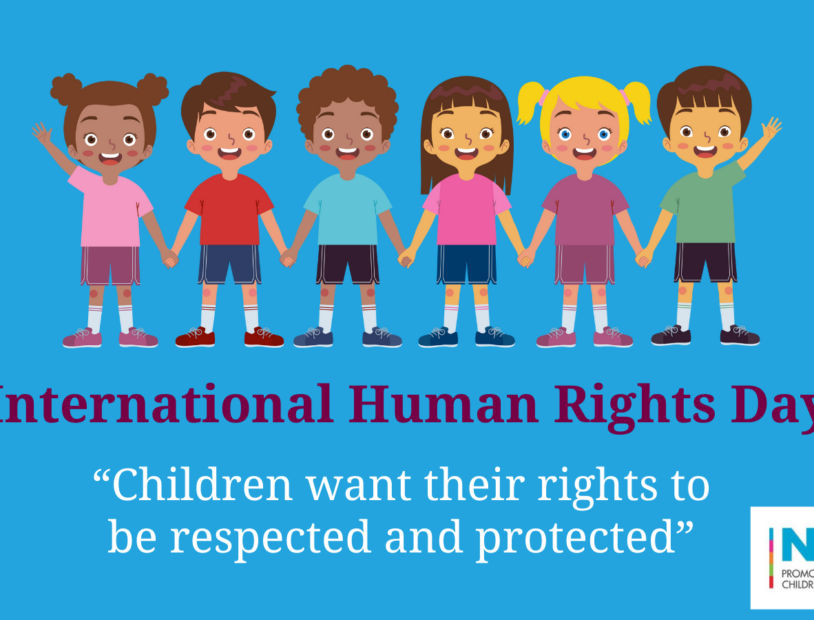
This needs to be a wake-up call to those in power that when the rights…
News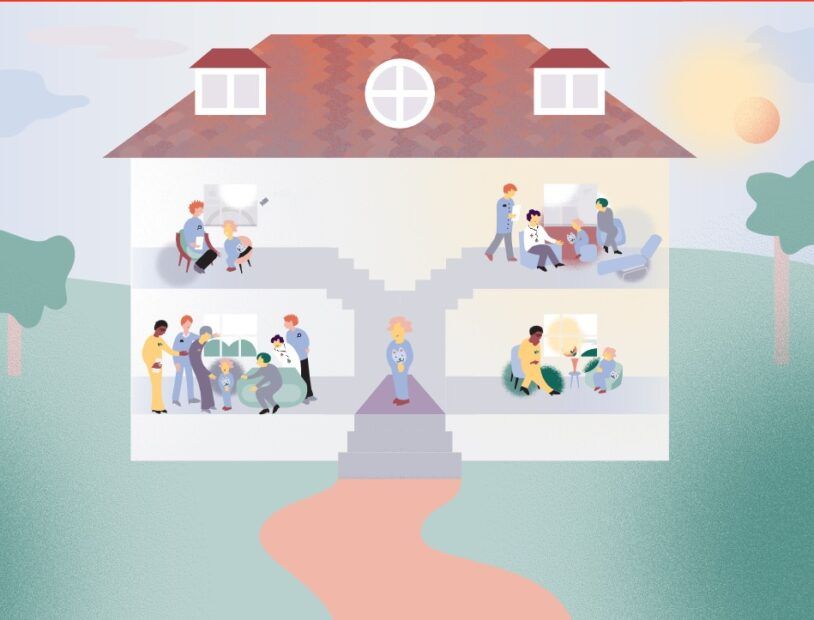
NICCY launched its assessment of how government is progressing with recommendations it made in ‘Putting…
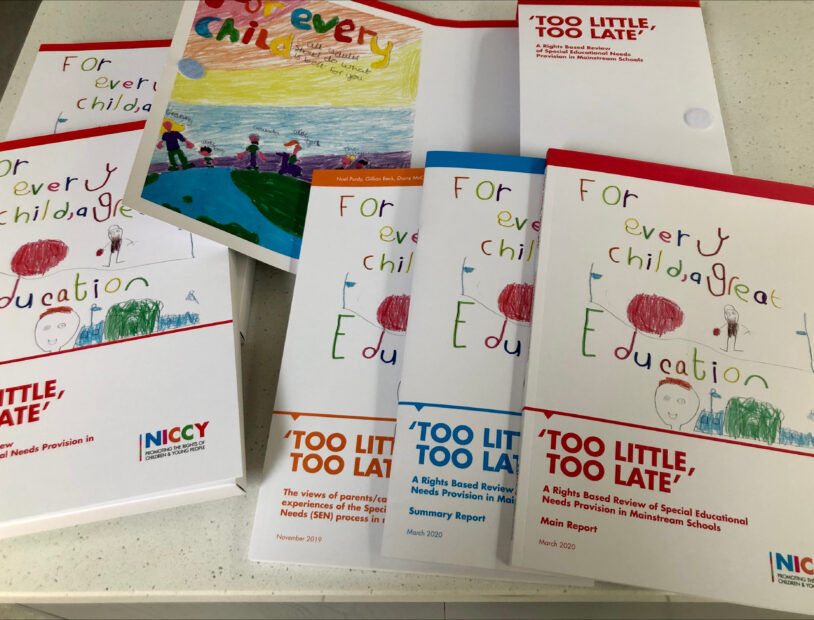
In March 2020, NICCY published a ‘Rights Based Review of Special Educational Needs Provision in Mainstream…
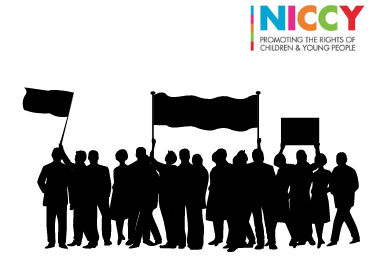
NICCY joined fellow Commissioners from Scotland and Wales to provide advice on the Human Rights…

NICCY provided advice on proposals for a New Regional Service Delivery Model for Separated and…
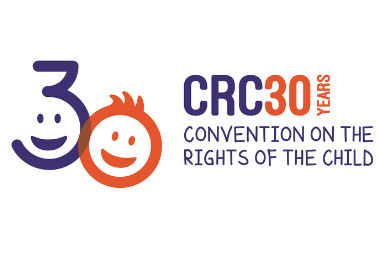
On the 20th of November 1989, the United Nations adopted the Convention on the Rights…
Commissioner's Blog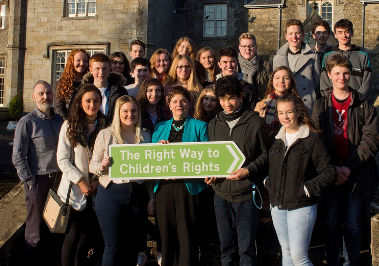
Four years seem to have flashed by since I took on the role of Northern…
Commissioner's Blog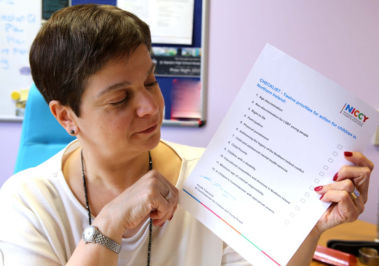
2016 is turning out to be the most unpredictable and tumultuous year across the world. …
Commissioner's Blog